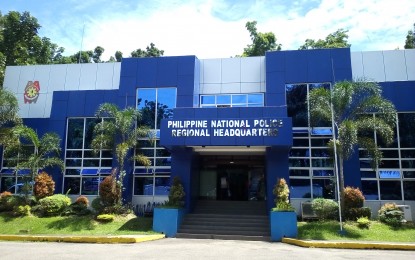
TEAMS VS. nCoV. The Philippine National Police (PNP) regional office in Palo, Leyte. The PNP in Eastern Visayas has formed quick response teams to track down persons with recent travel history in countries positive of the 2019 novel coronavirus acute respiratory disease. (PNA file photo)
TACLOBAN CITY -- The Philippine National Police (PNP) in Eastern Visayas has formed quick response teams to track down persons with recent travel history in countries with positive cases of the 2019 novel coronavirus (2019-nCoV).
In a press conference Thursday, PNP Region 8 deputy regional director Col. Arthur Cabalona said local police units are on high alert and waiting for notice from the Department of Health (DOH) to locate persons who might have circumvented the quarantine protocols.
“The directive from the national headquarters is to help the DOH in the contact tracing of those individuals who have come to the Philippines and have shown symptoms of the virus,” Cabalona said.
Incident management task groups at the provincial and municipal levels are also ready to help in case of an outbreak, he told reporters.
Based on DOH data, the region has 11 patients under investigation (PUIs) since the global outbreak of the 2019 nCoV ARD with three have been discharged.
Eight patients have been isolated at the Eastern Visayas Regional Medical Center here.
PUIs are those with recent travel history in China and are manifesting flu-like symptoms.
There are also nine persons under monitoring (PUMs) for having close contact with the suspected carriers of the 2019 nCoV in the region.
The DOH said PUMs are asked to self-quarantine, avoid crowded places, check body temperature regularly and watch for flu-like symptoms. A health worker is also assigned to regularly monitor them.
Meanwhile, the PNP advised the public to stop sharing unofficial and unverified information on social media to avoid panic and confusion.
“There are individuals who spread fake news to create chaos. We assure the public that the PNP remains alert and vigilant to prevent criminal elements from taking advantage of the situation to ensure public order and safety,” Cabalona added. (PNA)
